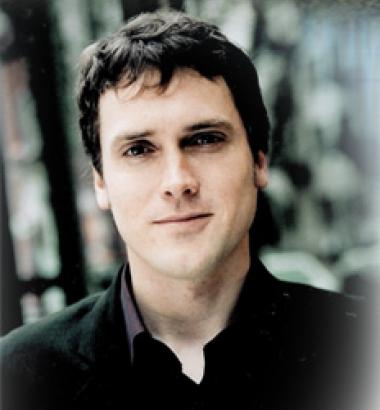
A Line Out
A talk with WQ contributor Tom Vanderbilt.
Will the Internet reinvent us? In “The Call of the Future” in the current WQ, Tom Vanderbilt says that we should calmly consider the telephone, the last communication technology that threatened to change everything. His article brought up some questions, which he answers below.
Are you a phone call person or a texter? Does that preference change if you’re not the initiator of the conversation?
This may be too fine a distinction, but I’m really an e-mailer. I’ll use the phone for family, for interviews, for the things that can’t be worked out on email, but I never came around to texting—something about how it has all the disruptive annoyance of the phone call, but without any of the epistolary grace of the email. Not to mention I don’t like to find myself resorting to weird acronyms, like I were some police dispatcher. I’m also suspicious of the profit motive involved; texting plans are expensive, relative to what you’re getting, bandwidth wise.
There have been some grumblings here in the office about your claim in “The Call of the Future” that the telephone has not profoundly changed us. But might the independent talk that the phone allows have helped create a distinct youth culture in America?
I’d be dubious in attributing the emergence of a youth culture to the telephone. For the first part, in the beginning of the century not that many people actually had phones, and those that did tended to have only one, and it was placed in the front entryway of the house or the living room—hardly conducive to the kind of epic chats I remember from my youth. “Extension” phones and the like didn’t emerge until the 1950s, pushed along by AT&T marketing, which was trying to figure out new uses for the phone as a way to generate new business in what was on its way to becoming a mature market. Just as suburbia wasn’t created by the car, but by the train, I think we have another one of these “amplification” issues, where the phone merely pushed some process further along, rather than instigating it whole cloth. The car, indeed, might be a more important factor here. For instance, a recent article by Peter Ling in History Today looks into whether the automobile essentially invented “dating,” by moving courtship rituals from the family, domestic sphere into one of public space. The answer seems unresolved, but he does write: “The overwhelming majority of teenagers interviewed by the Lynds in the mid-1920s said they had been to petting parties and the automobile was the commonest place to pet.” Lastly, I would argue that the place where cultures are actually forged are in in-person interaction—whether school or the soda fountain—and the phone was just a substitute, a proxy, a means to an end.
Your article gives the sense that phones and written, digital communication are coexisting much like Homo sapiens and Neanderthals once did. Is there anything walking among us now, communication-technology-wise, that we should look out for? Anything you see crawling in a cave to expire?
Pagers—or “beepers”—must be just about dead, right? I think drug dealers were keeping them going but perhaps they even switched to disposable mobiles. I would have also thought the fax was just about dead, but yet I am still asked to fax things, even though the very same thing can be accomplished via scanner and e-mail without tying up the phone line. But I am fascinated, in a sort of casual anthropological way, about all kinds of transitional communication technologies that have existed for a brief time, now looking like weird relics but in their time completely rational and “cutting edge”; like in Woody Allen’s Play it Again Sam, the now almost inconceivable notion of having a human-staffed “answering service” that would receive messages for you, or, in Tony Roberts’ case in that film, you could constantly “ping” to tell them where you were going to be. It’s interesting too how the past can haunt the present, like some kind of phantom limb of memory: Virtually no one uses a dial phone anymore, but the verb “to dial” is still out there, as if we couldn’t figure out a good new way to describe what one does with a push-button phone. I can only imagine there’s been a massive drop-off in postal volumes of letters, postcards, etc., although as with vinyl, who’s to say there wouldn’t be some resurgence? I have a friend who sends me postcards and it’s now like the most magical thing, worth its weight in gold, creating a far vaster impression than any number of links to someone’s vacation on Flickr, or the thousands of daily tweets—of which I probably read 10 on average, approximately none of which is encoded into long-term memory.